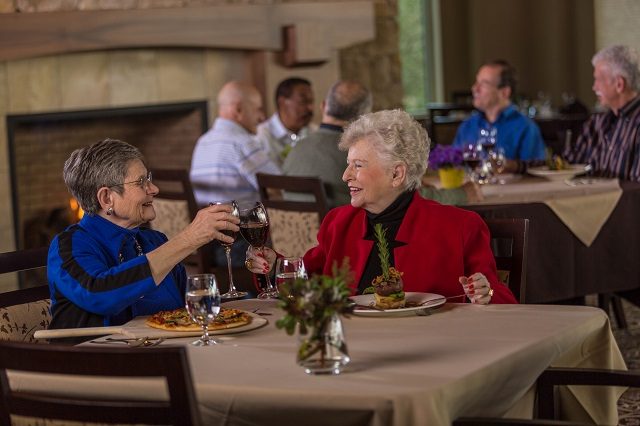How welcoming are mainstream senior communities of members from the LGBTQIA community?
The LGBTQIA community has been creating intentional communities for decades now, reports Cynthia Dettman from the Fellowship for Intentional Community.
With this the case due to safety and support concerns, one may question how welcoming mainstream senior communities are of members from the LGBTQIA community.
Angela Hunkler, a resident at Phoenix Commonsin Oakland, California, read a story in Forbesthat posed the question,
The headline sent a shiver up her spine. “God, I hope not,” said Hunkler. “I hope I wasn’t just lucky when I found an accepting cohousing community for seniors.
The more I thought about it, the more it troubled me that other LGBTQIA seniors might feel compelled to go back in the closet in the community they choose to spend their senior lives in.”
Living In A Cohousing Community
For background, Angela is a lesbian and for three years has resided at Phoenix Commons, a cohousing condominium community for 55+ on the Oakland waterfront.
Her neighbors in this intentional community accept Angela and her wife whole-heartedly.
Cynthia Dettman from the Fellowship for Intentional Community wrote that as some members of the LGBTQIA community believe that seniors of this generation have grown up in a more closeted, conservative era.
Therefore, it is only a natural concern about how they will assimilate in the confines of a senior community.
Non-discrimination laws protect LGBTQIA individuals
Movement Advancement Project reports that the state of California’s housing non-discrimination laws protect LGBTQIA individuals from being unjustly evicted, denied housing, or refused the ability to rent or buy housing on the basis of sexual orientation or gender identity.
These non-discrimination laws are vital to the security of the LGBTQIA community, who represent 5.3% of the state adult population. However, attitudes of the people who live in senior housing may not always reflect the laws.
Angela considers herself fortunate. She may be a senior, but she’s still able-bodied and has a career. She says, “If you’re in my boat, you may be a good candidate for senior cohousing.”
What is Cohousing?
Cohousing is an intentional community of private homes clustered around shared space. Each single-family home has traditional amenities: kitchen, family room, bedroom/bedrooms and bath. Shared spaces include a large kitchen, dining area, laundry, parking and entertainment along with indoor and outdoor recreational spaces.
Owners in cohousing have independent lives but together they collaboratively plan and manage community activities and shared spaces, typically under the structure of a Homeowners’ Association. Cohousing is on the rise for seniors and is becoming more available across the U.S.
Cohousing groups seek to balance private and community needs while building mutually supportive relationships among members through teamwork and playing together. Social events, impromptu gatherings, shared meals and scheduled meetings provide ample opportunity for interactions.
Hunkler offered six tips to help LGBTQIAs ensure the senior community they evaluate is an environment they’ll feel comfortablebeing themselves in:
- When looking for your senior community, make sure it can accommodate your physical requirements, albeit now and in the future. Phoenix Commons is entirely ADA-approved.
- When you think you’ve found your dream community in your dream location, don’t rush to sign on the dotted line. Take your time to know the residents and their surroundings. Can you see yourself living there 20-30 years from now? Look for opportunities to socialize. For example, at Phoenix Commons we all work together in the kitchen and with necessary tasks to keep our common home up.
- Choosing a senior housing community is a huge commitment. Now is NOT the time to hide in the closet. To ensure the community you are signing onto is welcoming and accepting of you, be honest and most importantly be yourself.
- If you just want to put your toe in the water, invite 2-3 of the residents to dinner to know you a bit better. Attend a homeowner’s association (HOA) meeting. Buddies in this process are important.
- Ask about the community’s initiation process. Perhaps the community you desire to live in will allow rentals while you are pondering this sizeable investment.
- Finally, note that this process from start to finish could take a while when you factor in the time it takes to downsize your possessions, sell your home and eventually move.
